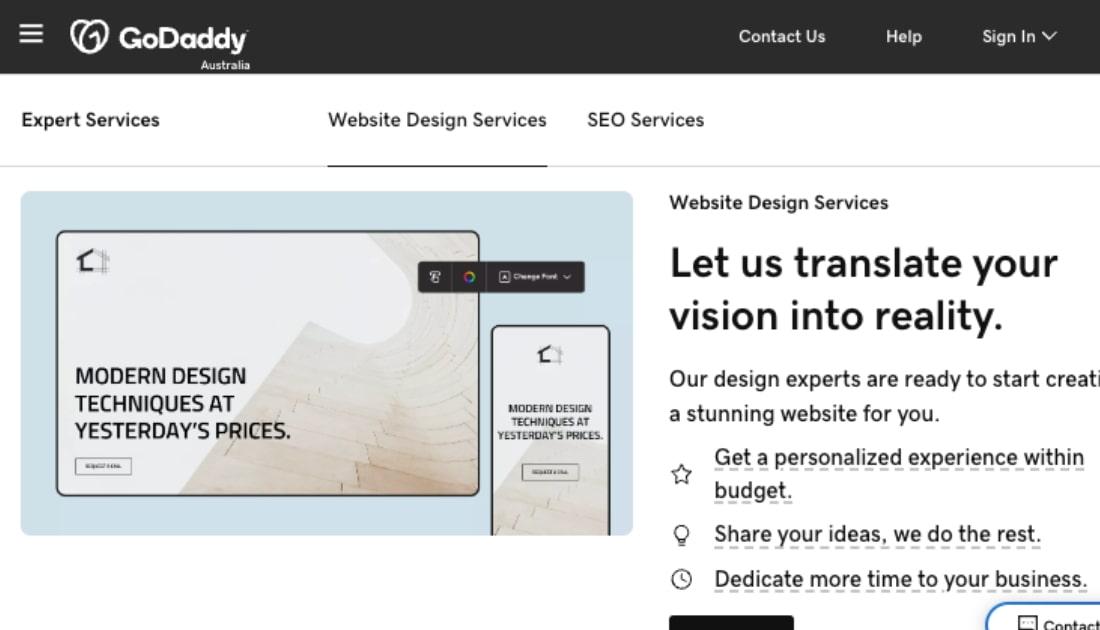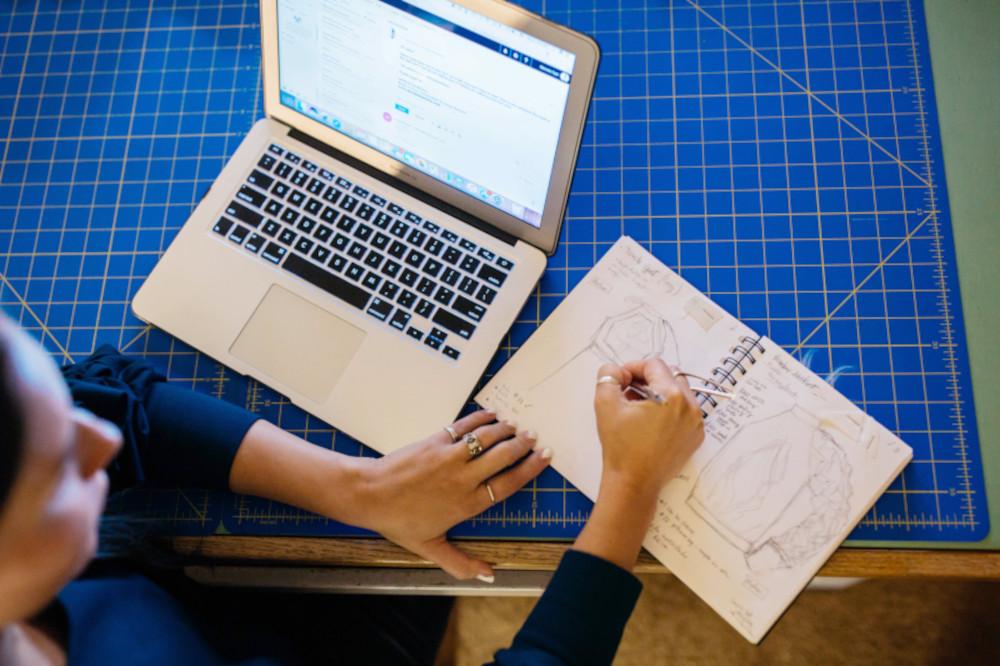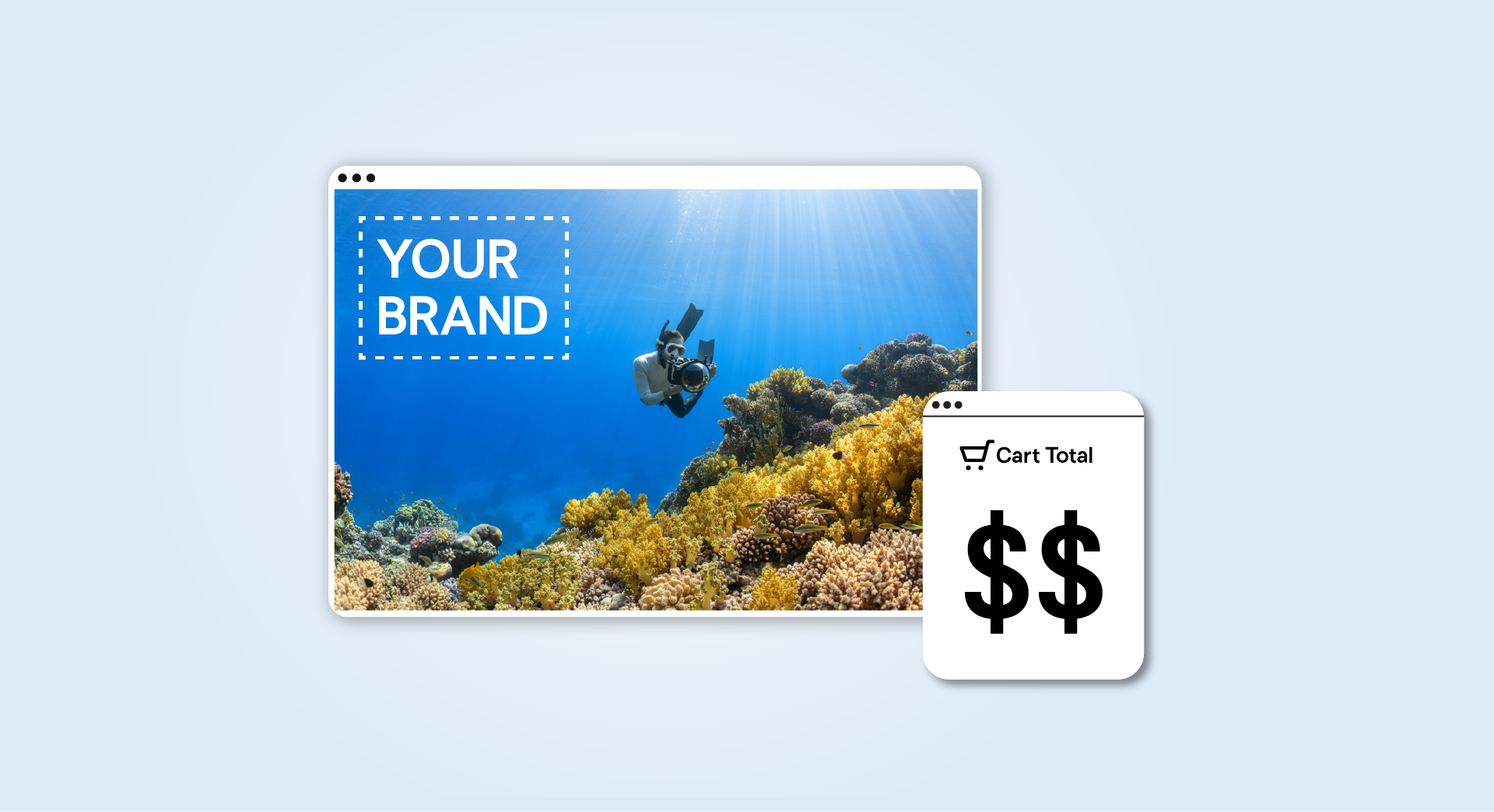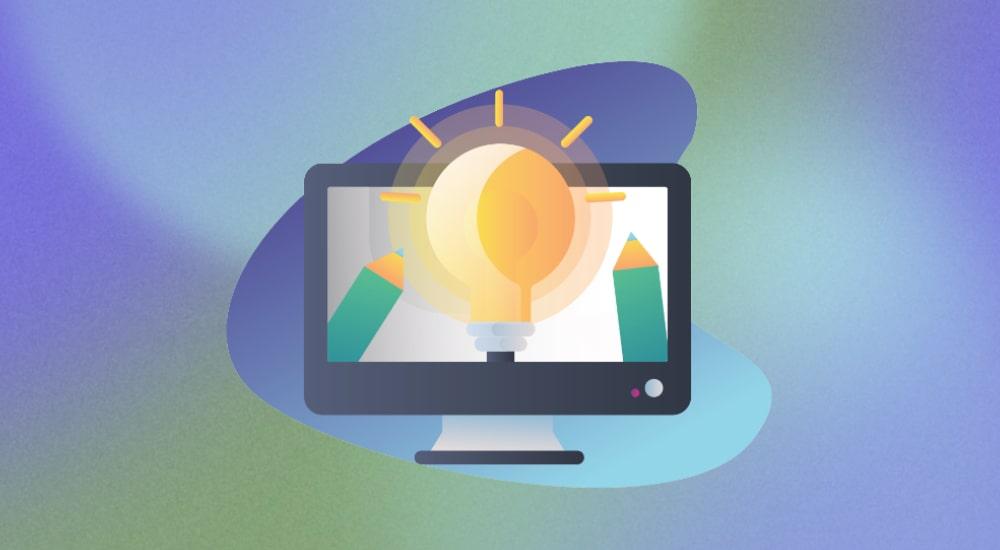Just as our eyes are the windows to our souls, your website is the window into the soul of your small business. So naturally, the look and feel of your business website is critical. But not all of us can build websites like the pros. The great news is, outsourcing your web design and development is an excellent way to take care of all your web-related needs without hiring staff.
In this blog, we share everything you need to know about outsourcing, including things to watch out for before you hire.
Editor’s note: Trust the web design professionals at GoDaddy to build a great-looking website for you at an affordable price (with free domain included).
Tips for outsourcing your web design and development
When it comes to outsourcing your web design and development to a single expert or team, there are three main things to pay attention to:
1.Do your research

Before you make a commitment, it's important to be sure you're picking the right provider. This means researching their experience, work, and customer feedback before agreeing to anything. Ask friends, family and associates for recommendations.
There are two main options when picking a provider — choosing a freelancer or an agency.
The freelance option
Generally, freelancers can offer a very competitive price since they don't have the same overheads as an agency. And there are a lot of talented freelance designers and developers out there.
The downside to hiring a freelancer is that sometimes the finished product can be a bit more unpredictable. But if you do your homework, this can be a good choice.
An agency
With an established agency, you're working with a company with a hierarchy of responsibility.
An agency’s fees will likely be higher, but their offerings will be more diverse as well.
They also have a larger talent pool, which means that if something unexpected occurs (e.g. illness), you won't be left in the lurch. There will be other people to take over to make sure your website is being done well and in a timely fashion.
2. Clearly communicate your expectations
Once you have chosen your provider, it is important to set clear expectations from the start, on:
Frequency of communication
Get a commitment from your web designer or developer on how often you will receive updates and in what mode. For example, will it be on email, phone, WhatsApp or a collaborative tool such as Slack? Don’t be afraid to ask for weekly updates.
Project timelines
How long will things take? There should be time allotted for revisions you request, testing the responsiveness of the site and making sure everything works before you pay the bill.
Scope of work
This refers to what exactly you will get. For example, how many web pages and words per page? Remember that search engines like Google can’t “read” photos or videos, they can only read words.
A visually stunning website with few words won’t do much to help your website show up in search rankings.
You should also ask if you have to pay extra for stock images or if they can take photos for you. Will they be available to update your website periodically and if so, how much will that cost? Be clear, so you know what you are paying for.
Website design
Design is very subjective, and even the best designer in the world may not whip up something that catches your eye on the first go. Let your designer know what you like and don't like. It helps to provide some visual examples. It's as simple as sending a few images collected from Google Images or Pinterest.
3. Take control of your digital assets
If your business is successful, your website will be a valuable business asset. So it's worth making sure that everything associated with it is under your control.
Those who hire web developers or designers to create their websites often don't realise that the domain name and hosting account associated with the website is registered to the developer rather than to them. This is risky because if the business owner and developer part ways for any reason, the business owner could find themselves without control of their own website.
Make sure your domain name, email account and web hosting is in your name. The same goes for any third-party services that have been set up such as:
- Google Analytics
- Social media handles
- SEO tools

You will need to do all this due diligence before you pay the final invoice or in the website handover process. Issues with your account ownership is the last thing you would want to worry about once your website is completed.
A great way to prevent this is to buy your domain, email and website hosting before you commence the project. Your website provider should be able to walk you through the process and make any other product/service recommendations to set you up for success.
Related: 10 tips for choosing the perfect domain name
What does it mean to outsource?
Outsourcing is when a business hires or contracts out a third-party agency, individual, freelancer or another company to perform some business functions.
The outsourced provider is paid based on the project or an hourly rate, rather than a salary.
Many businesses outsource web-related services such as digital marketing, software development and web design and development to enhance their services or accelerate business growth.
You don't need to be a big company with huge budgets to outsource work. Any business can take advantage of outsourcing, from start-ups and small businesses to sole operators.
Benefits of outsourcing
Outsourcing is an excellent business model for the entrepreneur whose ideas stretch beyond their skills, experience, time or budget. Outsourcing:
- Helps small ventures grow quicker because it demands fewer resources than hiring an employee
- Allows business owners to focus on what they do best rather than spending time and energy to figure out new systems
- Puts the expertise of professionals anywhere in the world at your disposal
- Can increase the value of your product, service and offerings
Allows you to collaborate with experts in diverse fields, which will grow your network and knowledge-base.
Outsourcing your web design and development also allows you to stay ahead of the technology curve. Experts in web services are well-equipped with knowledge in the latest design tools, technologies and user experience (UX) trends.

The online world is getting noisier with so much content out there. A well designed, high-performing and responsive website that meets the needs of your business and customers is priceless.
Another advantage is you can save money — which is front-of-mind for every business owner. Outsourcing your web design process helps you save the cost of hiring a team of designers and paying for resources. When you hire in-house designers, you'll have to invest in their training and development and invest in the latest web design tools. Outsourcing your web design services can, therefore, be very cost-efficient.
Are you ready to outsource your website design?

Outsourcing your website can bring so many benefits and values to your business if you choose the right provider. Just to be safe, make sure your domain name, email account and web hosting is in your name rather than the designer or developer’s name.
A reliable freelancer or agency can help you produce a well-designed, high-performing and responsive website to help you achieve the business outcomes you desire.







